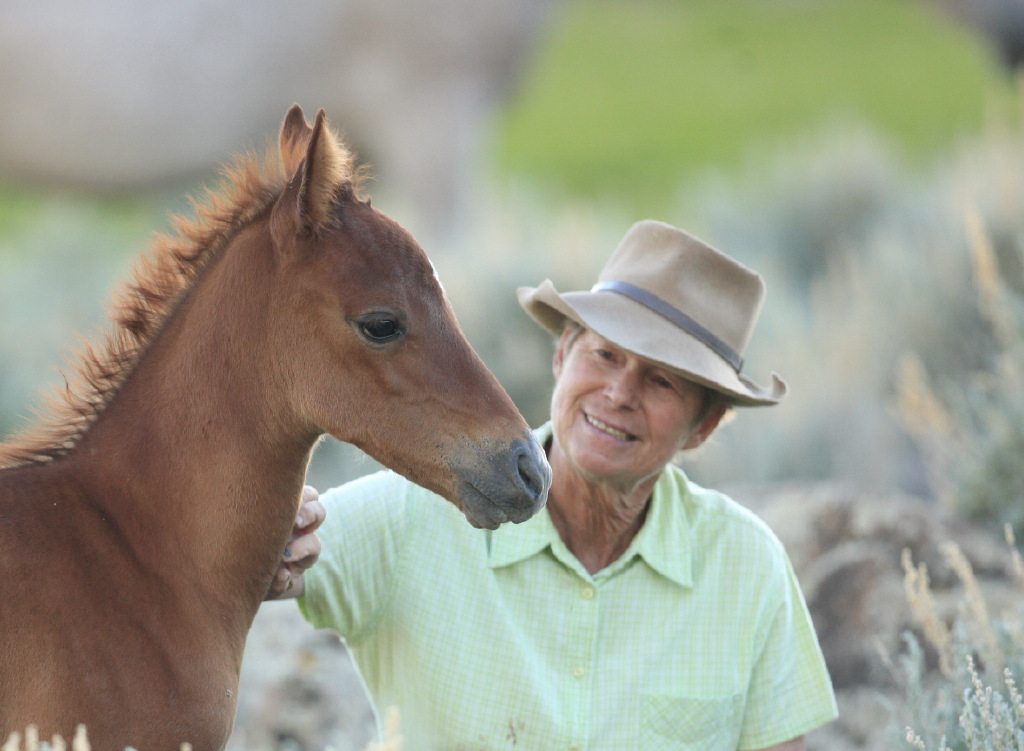A Very Special Partnership
Horseback riding is a sport at which women excel. One can try to explain their success because they are lighter than men and have obvious anatomical advantages for the saddle. This is certainly not everything. After 70 years of riding and close association with riders, I am convinced that the most important reason for feminine preeminence in the sport is their ability to relate to horses. It is partly a matter of sensitivity and patience. It is also a matter of willingness to trust in a real partnership where the whole is far more powerful than the sum of the parts.

Men are often too preoccupied by the need to show their macho strength in dominating a horse and are less willing to seek a harmonious relationship. They often seem to feel they must overpower a horse and make it totally subservient to their will. Many of them would be pleased if a horse reacted in the same insensate way as an automobile to a turn of the wheel, a foot on the brake or a push on the accelerator. Some people are just more at ease with machines which will always obey even suicidal commands unquestioningly.
For 25 years I have operated a riding tour company and have found that over 70% of our clients are female. They tend to find an easy rapport with horses which most men have more trouble achieving. At our own ranch in Wyoming (the Bitterroot Ranch) the majority of our wranglers are women. They love working with horses and are invariably patient, friendly and understanding to both horses and guests without showing off. They have taken the time to study equitation and horses in depth and many hold degrees from the British Horse Society or similar American institutions. Our wranglers care passionately about the physical and psychological welfare of their horses and are extremely conscientious. We have seen few situations where great strength is an asset although men do have an advantage with shoeing.
For 20 years Linda Tellington-Jones has been doing a clinic at our ranch each year to teach people how to start young horses. During the week she starts our four-year-old Arabians who have not yet been backed although they are used to being around people from the time they are born. These clinics using non-confrontational techniques have been immensely successful with clients (90% women) and they have given our horses a wonderful start. During the week the young horses are slowly prepared for a rider without being pushed too much. It is a long process demanding considerable patience which few men seem willing to offer. They prefer crash programs, much in vogue these days, which overwhelm the horse in a short time and give quick results, but do not work so well to make a trusting partner out of the animal in the long term.
Women are also frequently the leaders of the riding tours we handle around the world so our own ranch with its 180 horses is not an exception internationally. From Botswana to Argentina there are women leading rides and doing a first rate job. It does seem to be true, however, that most Western dude ranches still adhere strongly to the masculine cowboy mystique with Marlboro hats, coiled ropes and jingling spurs. It depends on one’s priorities and many of these ranches are focused more on the trappings of a Western experience with barbecues, hay rides, square dances and sing-along’s rather than riding in the equestrian sense.
Many patriarchal societies of the past in the days when horses were such a symbol of power (it was not so long ago) tended to keep a near male monopoly on riding. It appears that this has not always been the case. The ancient Greeks, who knew a lot about human nature, have such a rich mythology about women riders that it seems to me there is very likely some reason to believe in the existence of early women equestrians. Certainly the image of the fierce Amazon horsewomen belonging to a matriarchal society is a powerful and pervasive tale. These fearsome equestrian warriors were reputed to have cut off a right breast so that they could better handle their bows and spears. If so, they must have been mighty serious about what they were doing. It is interesting that in Mongolian society today women participate in riding for work and sports right along with the men.
Women have come into their own with horses in much of the world now that men no longer monopolize them. They find enjoyment and fulfillment in achieving a harmonious relationship which empowers both horse and rider. One can find somewhat the same kind of pleasure in teamwork with a working dog. Herding cattle with a willing horse is a good example of the kind of thing people and horses can do together. Whatever it is that makes women and horses such a good match, it has been a great delight to me over the years to see the happiness which this relationship has brought to both and I celebrate this partnership.
If you are interested in reading more on this subject visit the Hestenes Klan website.
By Bayard Fox

